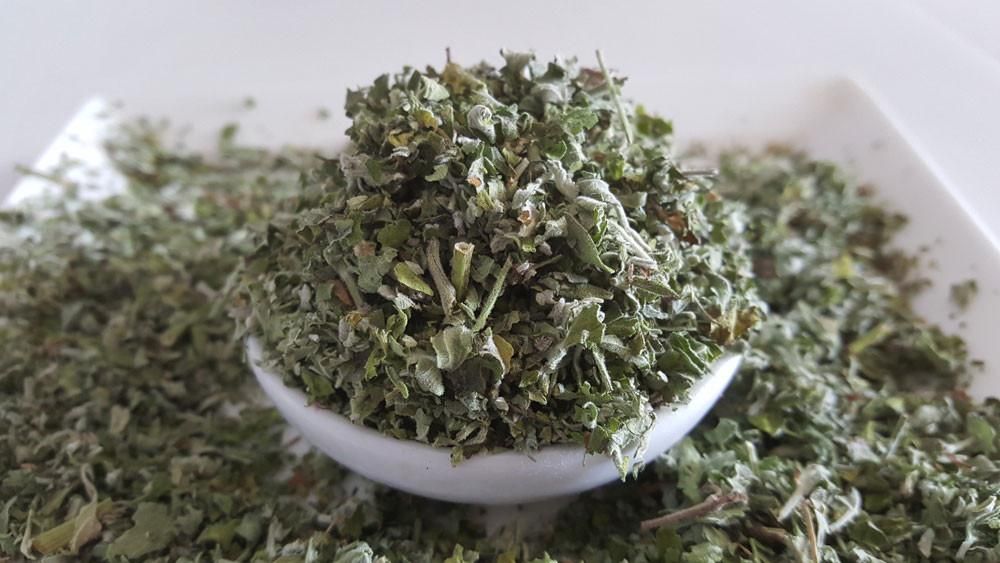How many of you have given your cat a toy that is filled with catnip and watched them go wild? It's like a drug for our feline friends and gets them all wired up and ready to play.
But I'd bet there are a lot of people who don't realize that catnip actually has qualities that are beneficial to humans as well! I remember when I first heard about catnip tea, I was surprised that something we usually reserve for animals could actually help with a lot of problems that I was dealing with health-wise.
There are two different types of catnip, common and lemon. Common catnip is the one most loved by cats, and it has white heart-shaped leaves and flowers.
Lemon catnip is less loved by cats, as they don't love the smell of citrus. It looks similar, though.

Once dried, the catnip can be added into almost anything you eat! Stews, soups, salads, and sauces can all be enhanced with catnip. Don't worry though, the effects catnip has on humans is not the same as those on cats.
In fact, the effects of catnip can be extremely helpful, especially for those suffering from chronic conditions.
Catnip contains vitamins A, B and C, calcium, iron, magnesium, manganese, phosphorus, potassium, selenium and sodium, which makes it a nutritional beverage on many fronts. But aside from a vitamin boost, catnip can be turned into tea and help with these common conditions.
1. Insomnia
Completely different than in cats, catnip acts as a natural calming agent for humans. It's caffeine free, and also helps relax your mind to give you a more peaceful sleep. The nepetalactone found in catnip is a natural sedative, which can help those suffering from insomnia finally find a good night's rest.
2. Anxiety
Because of the nepetalactone, your nerves will be soothed naturally and your anxiety levels will drop as well. Having catnip tea on hand during stressful times can help relieve some of the pressure.
3. Migraines and Headaches
In addition to the sedation aspect of nepetalactone, the substance also naturally soothes migraines and headaches without requiring medication. This is beneficial to those who suffer from migraines frequently and do not want to potentially damage their internal organs by taking excessive amounts of medication.
4. Digestive Problems
Catnip is a natural antacid, and can help reduce acid reflux and other digestive issues. It can helps with gas, diarrhea, and cramping as it is an antisaspmodic. This can soothe stomach muscles and cure stomach ulcers in a natural way.

5. Menstrual Cramps and Regulations
Catnip tea is an herbal remedy to a common problem, cramping while on your period. It can help reduce the symptoms of PMS, and also help regulate your flow. Catnip is an emmenagogue, which can stimulate your uterus and help regulate your cycle.
6. Cold & Flus
When cold and flu season hits, we don't always want to fill our bodies with medicinal treatments than can harm us in the long run. Luckily, catnip tea acts as a natural decongestant, so it will loosen any phlegm and suppress your coughing. It can also bring down your fever through sweating. The anti-bacterial properties of catnip tea make it perfect for allergy season or even the early stages of a cold.
Other benefits:
- Soothes asthma and sinusitis symptoms
- Relaxes your muscles after a workout
- Acts as a detox for your body
- Cooled catnip leaves can be used as a soak to help heal burns, bug bites, and cuts
- Soothes arthritis pains and soft tissue injuries
Recipe
You'll Need
- 1-2 teaspoons dried catnip
- 1 cup of hot water
- Honey, to taste
- Lemon, to taste
- Chamomile or mint tea (optional)
How To Make It
- Pour the boiling water onto the dried catnip leaves
- Let it sit for 10-15 minutes
- Add lemon and honey until the taste is to your liking
- For a softer taste, add the catnip to chamomile or mint tea. This will take away some of the bitterness.
Drink the tea two to three times a day for best results.
